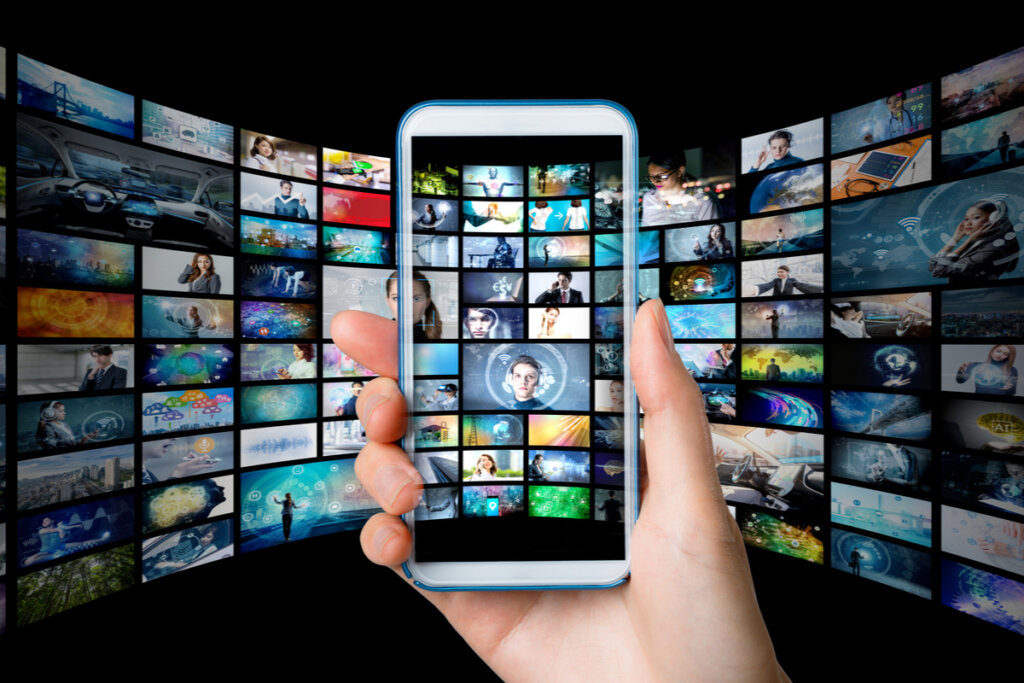The Connection Between Cognitive Laziness and Social Media


Written and verified by the psychologist Valeria Sabater
Everyone possesses the fabulous ability to reason. However, although you think, in reality, you don’t do it particularly well, and sometimes you get carried away by cognitive laziness. This subtle defect means, in effect, that you leave your analysis capacity on standby and lower the barriers that impose filters and restraints on any lies and manipulation you encounter.
This topic is more relevant than it might seem at first glance. In fact, something we know from psychology and neuroscience is that thinking requires a cognitive investment that translates into energy expenditure. Indeed, multiple executive functions are activated. For example, attention, analysis, synthesis, comparison, judgment, etc. Nevertheless, your brain is lazier than you think.
As a matter of fact, your brain prefers to save time. For this reason, it lets itself be carried away and function on automatic pilot. Unfortunately, this means that it lazily accepts everything, no matter how biased or prejudiced that information might be. This can be dangerous. Because, if you don’t think as you should, you accept false information and treat it as true. Indeed, he who doubts nothing is a victim of everything…
One of the things experts are most interested in is understanding why people tend to believe misinformation or malicious information. Cognitive laziness may be part of the problem.

What’s cognitive laziness?
Cognitive laziness defines a limited mental focus when it comes to processing the information you receive. It has nothing to do with your IQ. Therefore, there are extremely intelligent people who, at a given moment or in a specific circumstance, reduce their cognitive resources. Furthermore, this happens to all of us.
For example, it happens when you make use of stereotypes or prejudices. In other words, your brain simplifies the information you receive to save you time and energy. This translates into extremely common and known dangerous realities.
For instance, recently, a public figure went viral because, on his Twitter account, he published that volunteers were needed to collect the lava from the La Palma volcano in the Canary Islands (Spain). Within minutes, numerous taunts, criticism, and memes were flying around. That’s because few individuals were able to apply the critical sense to realize that this account might be false…
When you don’t think carefully, falsehood triumphs
We need to try and understand why people are so susceptible to believing erroneous and false information. Because the problem doesn’t only lie with those who perpetrate the deception or seek to manipulate the masses. What we need to know is what makes us all so vulnerable to these frequent traps. Furthermore, how much damage they really cause.
If someone tells you that “you don’t think”, you’ll probably feel hurt. However, the truth is that you don’t think correctly. You get carried away by cognitive laziness because the world that surrounds you – even more so in social media – is too complex. In fact, you’re receiving new information and images almost every second. Consequently, you don’t have time to process everything meticulously.
In 2019, Yale University (USA) conducted a study concerning why people believe fake news. The researchers speculated that the answer would be that we only tend to believe something along the lines of what we already thought could possibly be true. However, the results didn’t accord with this hypothesis.
In fact, the study suggested that we’re lazy and we have a hard time applying analytic reasoning, no matter where the information comes from.
You prefer to preserve your thinking and analysis capacities for other specific tasks. When you look at your mobile you do it to distract yourself, to relax, or have fun. You watch and read without thinking and this makes you believe completely manipulated realities.

What’s the solution? Reversible thinking versus cognitive laziness
Cognitive laziness blinds you to the evidence and makes lies triumph. Although, as humans, we all have the skills to detect certain dangers that make our survival more likely, the digital age has also marked a revolution in this regard. In fact, enemies aren’t physically around you, they inhabit your electronic devices.
If you want to cope with this relaxed way of thinking, you must activate reversible thinking. This approach defines your ability to reason in a bidirectional way. That’s to say, reversible reasoning allows you to handle information from multiple perspectives. It also helps you to solve problems from various approaches, no matter how contradictory they may be.
The key lies in getting rid of that sloppiness, that rigid approach. In fact, cognitive laziness is like crossing a road looking only ahead of you, forgetting that the real danger is on both sides. Therefore, open your eyes and make that much-needed effort to avoid being run over by lies.
Jean Piaget defined reversible thinking as a trait of genuine intelligence. Thanks to this ability, you process information through a wider perspective, and you never simply stick with your first option or the obvious.
Everyone possesses the fabulous ability to reason. However, although you think, in reality, you don’t do it particularly well, and sometimes you get carried away by cognitive laziness. This subtle defect means, in effect, that you leave your analysis capacity on standby and lower the barriers that impose filters and restraints on any lies and manipulation you encounter.
This topic is more relevant than it might seem at first glance. In fact, something we know from psychology and neuroscience is that thinking requires a cognitive investment that translates into energy expenditure. Indeed, multiple executive functions are activated. For example, attention, analysis, synthesis, comparison, judgment, etc. Nevertheless, your brain is lazier than you think.
As a matter of fact, your brain prefers to save time. For this reason, it lets itself be carried away and function on automatic pilot. Unfortunately, this means that it lazily accepts everything, no matter how biased or prejudiced that information might be. This can be dangerous. Because, if you don’t think as you should, you accept false information and treat it as true. Indeed, he who doubts nothing is a victim of everything…
One of the things experts are most interested in is understanding why people tend to believe misinformation or malicious information. Cognitive laziness may be part of the problem.

What’s cognitive laziness?
Cognitive laziness defines a limited mental focus when it comes to processing the information you receive. It has nothing to do with your IQ. Therefore, there are extremely intelligent people who, at a given moment or in a specific circumstance, reduce their cognitive resources. Furthermore, this happens to all of us.
For example, it happens when you make use of stereotypes or prejudices. In other words, your brain simplifies the information you receive to save you time and energy. This translates into extremely common and known dangerous realities.
For instance, recently, a public figure went viral because, on his Twitter account, he published that volunteers were needed to collect the lava from the La Palma volcano in the Canary Islands (Spain). Within minutes, numerous taunts, criticism, and memes were flying around. That’s because few individuals were able to apply the critical sense to realize that this account might be false…
When you don’t think carefully, falsehood triumphs
We need to try and understand why people are so susceptible to believing erroneous and false information. Because the problem doesn’t only lie with those who perpetrate the deception or seek to manipulate the masses. What we need to know is what makes us all so vulnerable to these frequent traps. Furthermore, how much damage they really cause.
If someone tells you that “you don’t think”, you’ll probably feel hurt. However, the truth is that you don’t think correctly. You get carried away by cognitive laziness because the world that surrounds you – even more so in social media – is too complex. In fact, you’re receiving new information and images almost every second. Consequently, you don’t have time to process everything meticulously.
In 2019, Yale University (USA) conducted a study concerning why people believe fake news. The researchers speculated that the answer would be that we only tend to believe something along the lines of what we already thought could possibly be true. However, the results didn’t accord with this hypothesis.
In fact, the study suggested that we’re lazy and we have a hard time applying analytic reasoning, no matter where the information comes from.
You prefer to preserve your thinking and analysis capacities for other specific tasks. When you look at your mobile you do it to distract yourself, to relax, or have fun. You watch and read without thinking and this makes you believe completely manipulated realities.

What’s the solution? Reversible thinking versus cognitive laziness
Cognitive laziness blinds you to the evidence and makes lies triumph. Although, as humans, we all have the skills to detect certain dangers that make our survival more likely, the digital age has also marked a revolution in this regard. In fact, enemies aren’t physically around you, they inhabit your electronic devices.
If you want to cope with this relaxed way of thinking, you must activate reversible thinking. This approach defines your ability to reason in a bidirectional way. That’s to say, reversible reasoning allows you to handle information from multiple perspectives. It also helps you to solve problems from various approaches, no matter how contradictory they may be.
The key lies in getting rid of that sloppiness, that rigid approach. In fact, cognitive laziness is like crossing a road looking only ahead of you, forgetting that the real danger is on both sides. Therefore, open your eyes and make that much-needed effort to avoid being run over by lies.
Jean Piaget defined reversible thinking as a trait of genuine intelligence. Thanks to this ability, you process information through a wider perspective, and you never simply stick with your first option or the obvious.
All cited sources were thoroughly reviewed by our team to ensure their quality, reliability, currency, and validity. The bibliography of this article was considered reliable and of academic or scientific accuracy.
- Bago B, Rand DG, Pennycook G. Fake news, fast and slow: Deliberation reduces belief in false (but not true) news headlines. J Exp Psychol Gen. 2020 Aug;149(8):1608-1613. doi: 10.1037/xge0000729. Epub 2020 Jan 9. PMID: 31916834.
- Pennycook G, Rand DG. Lazy, not biased: Susceptibility to partisan fake news is better explained by lack of reasoning than by motivated reasoning. Cognition. 2019 Jul;188:39-50. doi: 10.1016/j.cognition.2018.06.011. Epub 2018 Jun 20. PMID: 29935897.
This text is provided for informational purposes only and does not replace consultation with a professional. If in doubt, consult your specialist.







